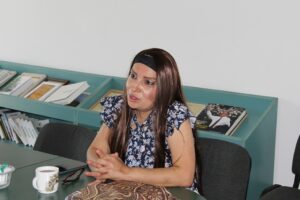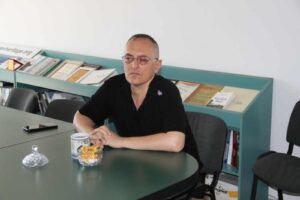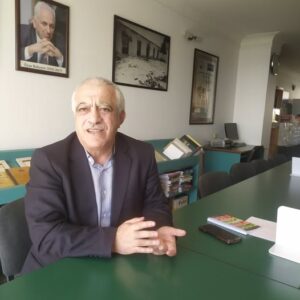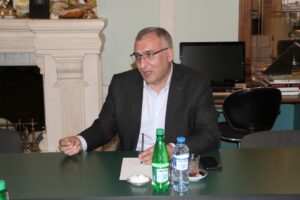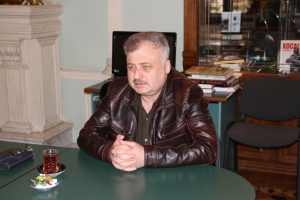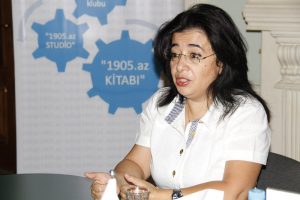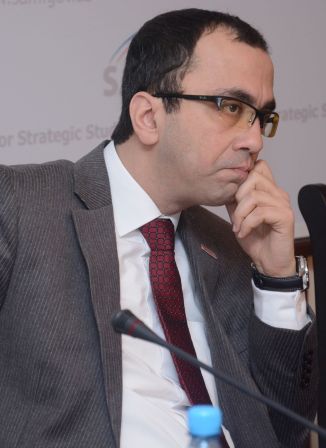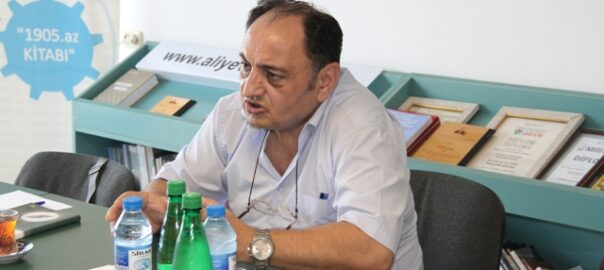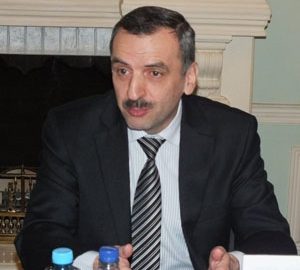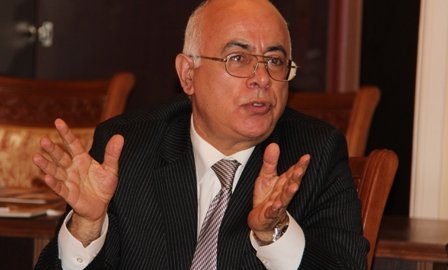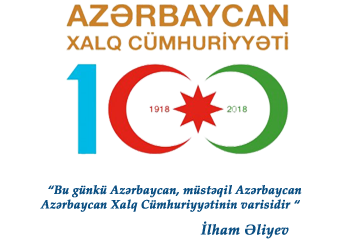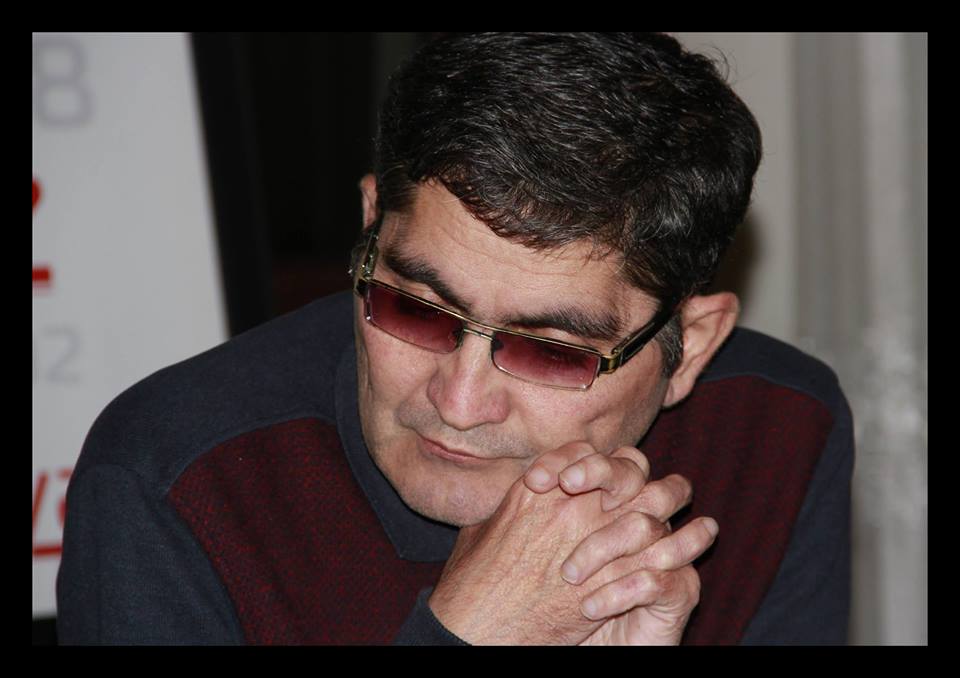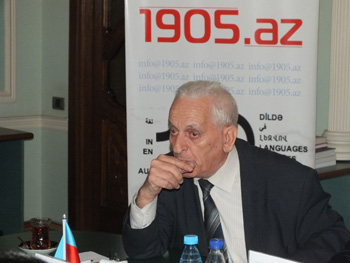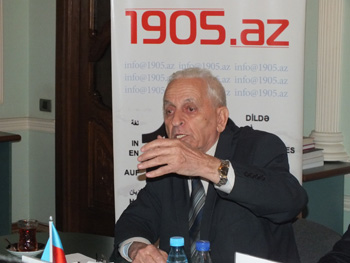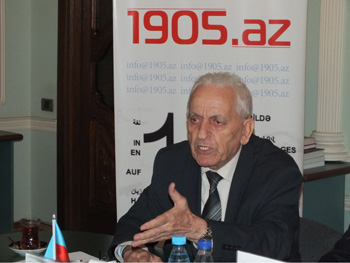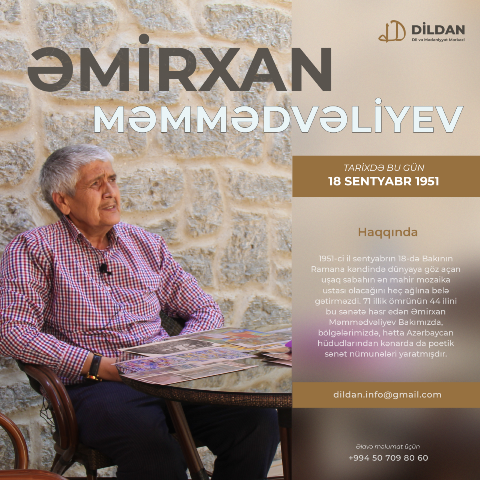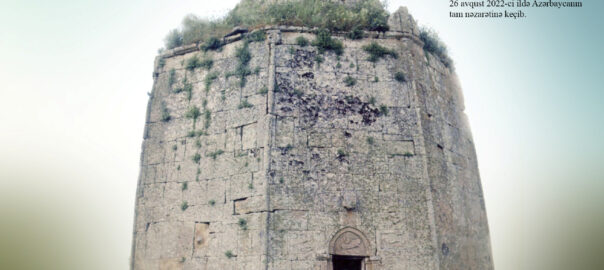Thirty-six PACE MPs, mainly from the Western European countries, submitted a document to the Bureau in spring and summer of 2011. In this document, they demanded that the preparations of the documents on defining the notion of the political prisoner, as well as the follow-up to the issue of political prisoners should be entrusted to different rapporteurs. Finally, fresh discussions on the issue of the political prisoners were held at the meeting of the Committee on Legal Affairs and Human Rights on 5 October 2011. The discussions proceeded in a very heated atmosphere. During the discussions, Committee Chairperson Mr. Christos Pourgourides and other members of the Committee from Spain and France made speeches.
Mr. Pourgourides, in his speech, underlined the readiness of the Azerbaijani government to cooperate with the rapporteur on political prisoners. He also drew attention to the fact that the Azerbaijani government was surprised and frustrated to find out that only Azerbaijan among 47 member states was chosen on the issue of the political prisoner. Mr. Pourgourides noted that the application of the report on the political prisoners only to Azerbaijan really served as a reason for double standards and discrimination. Therefore, he proposed to name the report not as “Reconsideration of the issue of political prisoners in Azerbaijan”, but “The investigation of the issue of political prisoners”.
The proposal was put to vote and accepted by an absolute majority vote with 2 MPs against. As a result of the voting, the Committee decided to investigate the issue of political prisoner not only in Azerbaijan, but also in all member states of the Council of Europe.
At first sight, justice was restored thanks to the 10-year intensive efforts of the Azerbaijani government and the delegation of Azerbaijan. Thus, the name of the report was already changed and the investigation into the issue of the political prisoners without any discrimination in all member states of the Council of Europe was put on the agenda. Though the approval of such a decision resulted in the inclusion in the agenda of the investigation of the issue of political prisoners without any discrimination among the PACE member states, it did not prevent discrimination against Azerbaijan. Thus, Mr. Christoph Strässer was steadily stressing the absence of a need for the definition of the legal criteria for the notion of “political prisoners”, and that political prisoners should only be followed up in Azerbaijan.
A few weeks passed since the PACE Committee on Legal Affairs and Human Rights took a decision to change the name of the report on political prisoners dated from 5 October 2011. In November, as a result of Strässer’s efforts, the Committee on Human Rights and Humanitarian Aid of the German Bundestag adopted a declaration on the human rights situation in Azerbaijan. The declaration was completely against Azerbaijan. The document cast a doubt on the honoring of obligations and commitments taken by Azerbaijan before the Council of Europe.
Moreover, it was noted that the October decision of the PACE Committee on Legal Affairs and Human Rights on changing the name of the report on the investigation of the issue of political prisoners was adopted “in response to Baku’s demand”. By saying that the members of the PACE Committee on Legal Affairs and Human Rights approved the decision “in response to Baku’s demand” by an absolute majority vote with one vote against, the Bundestag Committee cast a doubt on the competency of the PACE Committee and its members.
The declaration claimed that Azerbaijan refused to cooperate with Mr. Strässer, PACE rapporteur on political prisoners. In the document of the Bundestag Committee, it was said that though “the limitation on the issue of the political prisoners, set only to Azerbaijan, was abolished in response to Baku’s de mand”; Azerbaijan again did not issue a visa to the rapporteur on the political prisoners and made “him to postpone his visit to the country”. In its declaration, the Committee called on the PACE “to advice Azerbaijan to immediately allow the entry of the Council of Europe’s rapporteur on political prisoners, Mr.Christoph Strässer, into the country and to provide all necessary support for him to carry out his mandate” and “carry out comprehensive measures to oblige Azerbaijan to comply with the European Convention on Human Rights and Fundamental Freedoms”.
On 28-29 October 2011, Azadliq newspaper carried an interview with Strässer, titled “Strässer threatened the authorities with sanctions”. In his interview, he openly disclosed his position over the issue; serious allegations were put forward not only against the Azerbaijani authorities, but also members of PACE and the Committee on Legal Affairs and Human Rights, including members of the German Bundestag.
In the interview, Mr. Strässer expressed his disagreement with regard to the 5 October 2011 decision of the Committee on Legal Affairs and Human Rights on changing the name of the report on the political prisoners, and also drew attention to the fact that the decision had been taken in his absence.
He explained his position in the following way: “Let me express my position that I do not agree with this compromise. This is not such a pleasant outcome. This compromise was adopted in my absence. Therefore, I express my protest and note that I do not agree with it”. Mr. Strässer noted that, “I was displeased with processes taking place in PACE”. Accusing PACE members of setting up groups, he said “currently, efforts are made to establish groups over these issues and this is not acceptable”.
Along with this, Mr. Strässer stressed that although Azerbaijan’s name was excluded from the report, anyway, the talk will be about the political prisoners in Azerbaijan. The rapporteur, though he did not visit Azerbaijan up until now, was saying that his list contained names of 100 political prisoners in the country.
The rapporteur’s peculiar interpretation of the decision by the Committee on Legal Affairs and Human Rights and his claims, without doing any research into the existence of a certain amount of political prisoners, once more proved his biased and prejudiced stance on the issue. Threatening the Azerbaijani government in his interview, Mr. Strässer said that “the report in the pipeline would not be positive for Azerbaijan”. It was evident outright that Mr. Strässer, against expectations of him, was unwilling to become a neutral referee and to arrange a neutral fact-finding mission.
Furthermore, in his interview, Mr. Strässer noted that the Azerbaijani government’s lobby groups and groups close to it in the Western Europe obstructed his activities. At the same time, he claimed that the document prepared by the parliamentarians had been stolen from the intranet system of the German Bundestag. We should note that Mr. Strässer not only seriously accused Bundestag MPs of stealing documents, but also telling lies. Thus, on 24 March 2011, Mr. Strässer asked the socialist MPs of the German Bundestag to sign a petition against Azerbaijan on the issue of political prisoners. However, he himself did not sign this petition. Explaining his position on this issue to his colleagues, he wrote: “I cannot sign this petition on the ground of neutrality, as I am a PACE rapporteur.” He even asked the Bundestag members to keep secret that he had prepared the text of the petition and organized a relevant campaign. As obvious, Mr. Strässer was very well-aware of violating the norms of impartiality of the PACE rapporteur. Therefore, the document in question was not the resolution prepared by the Bundestag members, contrary to what Mr. Strässer said in the interview with Azadliq newspaper. As was noted above in that document, this political initiative was not put forward by other MPs, but by Mr. Strässer himself and by doing so, he deliberately violated the principle of neutrality.
The 28-29 October issues of Azadliq newspaper reported that “European MP (Strässer) exposed tricks of the Azerbaijani government”. So, in his interview with the newspaper, Mr. Strässer openly accused some former MPs from several European countries, as well as from Berlin, of corruption, considering it as a sign of the organized crime. He claimed that “Azerbaijan’s lobbyists made strenuous efforts to bribe members of the PACE Committee on Legal Affairs and Human Rights”. Then, realizing that he could only speak on his behalf, he admitted that “as to me, I can say that Azerbaijanis have never offered me a bribe”.
Obviously, such scandalous and outright statement without any proof and even without an element of a proof was an accusation full of slander against Azerbaijan and cast a doubt on impartiality of the members of the PACE Committee on Legal Affairs and Human Rights. These claims by Mr. Strässer led to such an impression that everybody, who objectively assesses Azerbaijan’s position, including members of the Committee, was allegedly bribed by Azerbaijan. Thus, it was doubtless that Mr. Strässer ‘s groundless allegations were biased and deliberate step directed against Azerbaijan’s international reputation, and they were aimed at undermining the Azerbaijani government’s business interests.
In order to make it clear for the public opinion, Mr. Strässer again threatened the Azerbaijani authorities in his interview and noted that “the report in the pipeline would not be in favor of Azerbaijan”. As a whole, the cases proving Mr. Strässer’s biased position against Azerbaijan and his groundless allegations against our country had a wider extend.
We should underline that later more serious and scandalous circumstances appeared with regard to Mr. Strässer’s interview. Thus, Mr. Strässer’s own website said that he had never granted an interview to Azadliq newspaper. It was noted that Mr. Strässer participated in the conference dedicated to the 20th independence anniversary of the Azerbaijani state in Berlin and made a speech with regard to the mandate given to him by the PACE on the political prisoners. He was quoted as saying that his speech was presented as an interview without his knowledge.
However, denying what were said by Mr. Strässer ‘s web-site, Qanimat Zahid, the editor-in-chief of Azadliq newspaper, told Yeni Musavat newspaper on 15 November 2011 that “all the views reflected in the newspaper entirely belonged to Mr. Strässer “.
Besides, Azadliq newspaper carried an article on 16 November 2011, titled “Has Mr. Strässer granted an interview to Azadliq?” In the article, journalist Fikrat Huseynli, who prepared Mr. Strässer ‘s scandalous interview, full of biased accusations, shed light on all the points with regard to the situation. He noted that Mr. Strässer ‘s denial of his interview was groundless and wide of the mark. Mr. Fikrat Huseynli of Azadliq newspaper underlined that Mr. Strässer ‘s speech at the conference, the questions he was asked over his speech, and answers to those questions, and the correspondent’s conversation with Mr. Strässer after the conference were recorded, and the audio was available. Besides, journalist Fikrat Huseynli said that once after the interview was ready, he contacted Mr. Strässer’s office and “was given the go-ahead” for the publication of the interview as “there was no problem”.
Thus, there were grey areas and dark moments around Strässer ‘s interview to Azadliq newspaper, titled “Strässer threatened the government with sanctions” dated from 28-29 October 2011. Mr. Strässer, on the one hand, put forward groundless and biased accusations against Azerbaijan and without visiting the country in the absence of any fact-finding mission and finally, without any discussions at the Committee on Legal Affairs and Human Rights, he on behalf of the Council of Europe demonstrated his personal anti-Azerbaijani position. On the other hand, Mr. Strässer claimed that he had not given any interview to Azadliq newspaper and distanced himself from the views sounded there. Thirdly, Azadliq newspaper stressed that views belonged entirely to Mr. Strässer and drew attention to evidence to prove them.
After this important decision of the Committee, the Azerbaijani authorities started preparations for Mr. Strässer’s visit in line with his mandate, as well as to determine the agenda of the visit. However, just at this time, Mr. Strässer’s abovementioned interview, titled “Strässer threatened the government with sanctions”, was published in the 28-29 October issues of Azadliq newspaper. Thanks to Strässer’s efforts, in November 2011, the declaration on the situation of human rights in Azerbaijan was adopted by the Committee on Human Rights and Humanitarian Aid of the German Bundestag.
As was obvious, Mr. Strässer declared a large-scale “war” against Azerbaijan. Within the framework of the campaign of war, there emerged claims that Azerbaijan refused from cooperation with the special rapporteur on the political prisoners, Mr. Strässer, and the “rapporteur was again refused a visa and “he was obliged to postpone his visit to the country”. And this “war” already started to bear fruits. Some media outlets were carrying fake reports, claiming that Mr. Strässer was not allowed to visit Azerbaijan, feeding the public with wrong and tendentious information. Whereas during the 7 November 2010 parliamentary election, Strässer already visited Azerbaijan as an election observer and did not have any visa problem.
We should note that despite Strässer’s prejudiced, ill-intentioned anti-Azerbaijani stance, the head of the Azerbaijani parliamentary delegation, MP Samad Seyidov, in a letter sent to the PACE leadership said that Azerbaijan was ready to discuss Strässer’s visit to Azerbaijan in 2012 for the discussion of the alleged political prisoners issue. Regrettably, being aware of theletter to the PACE leadership, Mr. Strässer continued his anti-Azerbaijani activities and misinformed the European parlia mentarians and the public, feeding them with false ana unreal information.
Undoubtedly, given the existing situation, there emerged such a question: after the abovementioned events, could Strâsser be an unbiased and neutral arbitrator in his capacity as a rapporteur? Can we believe that Strâsser will demonstrate an unbiased position? And is it possible to establish trusty constructive cooperation with him?
Finally, on 26 January 2012, on the initiative of Mr. Strâsser, the Committee on Legal Affairs and Human Rights held hearings on the topic of “Reconsideration of the issue of political prisoners”. Initiated by Mr. Christoph Strâsser, the Committee invited three NGO leaders from Azerbaijan to the hearings to speak in their capacities as experts. In their speeches, the NGO leaders noted that the criteria on the notion of “political prisoner” were not adopted and the appointment of the rapporteur on the political prisoners only in Azerbaijan made the Azerbaijani government justifiably dissatisfied.
They told members of the Committee that Mr. Christoph Strâsser had not established cooperation with Azerbaijanibased NGOs during his tenure as the rapporteur, and consequently, the issue in question reached an impasse.
Mr. Sadaddinov, an NGO representative, also said that for two years, Mr. Christoph Strâsser had not responded to any of his letters. The experts noted that, first of all, the criteria applicable to all member states should be prepared for the solution of the issue, the reports should be prepared for all member states; and on this issue, and no legal, bureaucratic, procedural obstacles should be created for any member states.
Addressing the hearings, the expert of the Azerbaijani government analyzed the Memorandum submitted to the Committee by Mr. Christoph Strâsser on 23 January 2012. In the Memorandum, though the issue for a number of member countries was resolved at the Monitoring Committee, he drew attention to biased opinions that for Azerbaijan, the issue was referred to the Committee on Legal Affairs and Human Rights, asking them for reasons why the issue for other countries is resolved at the Monitoring Committee, whereas for Azerbaijan, it is referred to the Committee on Legal Affairs and Human Rights? What is the reason for the discrimination against Azerbaijan? Why are the fundamental principles of the Council of Europe, such as the equality of the member states and the rule of law, violated vis-a-vis Azerbaijan?
He asked why for three years, Mr. Strässer, as the rapporteur, had established relations neither with the Azerbaijani government, the Azerbaijani delegation to PACE, the leading human rights organizations of the country, nor different opposition parties. Instead, he waged a campaign against Azerbaijan. He gave an interview to Azadliq newspaper, arranged hearings at the German Bundestag. He made groundless allegations against Azerbaijan, European MEPs collaborating with Azerbaijan, and members of the German Bundestag, and now he claims that he is not issued a visa to visit Azerbaijan to deliver on his mandate.
During the speech, it was noted that the rapporteurs of theMonitoring Committee visited the country without any obstacles. Azerbaijan is a member of numerous international organizations and fulfils its commitments. Thus, Mr. Strässer’s allegation that he is not issued a visa is wide of the mark. Consequently, he has lost his neutrality and trust in him as a rapporteur.
Monitoring Committee’s co-rapporteur on Azerbaijan Mr.Pedro Agramunt noted that in a few days, he would pay a visit to Azerbaijan accompanied by a Maltese co-rapporteur without a visa problem. He underlined that he had made a number of achievements in the release of presumed political prisoners as the implementation of a fact-finding mission on political prisoners was a main component of his mandate.
He also expressed his concern about the double nature of Mr.Strässer’s mandate that only caused confusion. To recap, he said that he had asked the Azerbaijani government for the release of the remaining 17 young men, named by Amnesty International, and got a positive respond, adding that this issue was under consideration of the Justice Ministry.
Further, members of the Committee spoke. Except for two German MPs, the majority of the speakers focused on the importance of preparing the criteria for the definition of the “political prisoners” applicable to all member states, defining the notion of the “political prisoners” and dividing the reports on the follow-up to the issue of the political prisoners in member states.
It was noted that the Council of Europe should open a new chapter on this issue and start from scratch and eliminate duplications between the Committee on Legal Affairs and Human Rights and Monitoring Committee.
The common mood that formed during the hearings was that the Committee on Legal Affairs and Human Rights should focus on “legal” issues rather than on fact-finding mission to the country, which falls under the mandate of the Monitoring Committee. Duality should be avoided. On the other hand, there is an urgent need for a legal report on the criteria and definition; therefore, the current report should at least be divided. Finally, any additional information on presumed political prisoners should be taken into consideration for all member states without exception and on continuous basis.
The former president of the Parliamentary Assembly, Mr.Mevlut Cavusoglu, summarized the discussion in his capacity as the last speaker at the meeting. He said: “I think we should open a new chapter on this issue. In my opinion, the report should either be divided into two parts, or the reporter should resign”.
After these words, the chairman gave the floor to Mr. Strässer to have the last word. However, despite the chairman’s surprise, asking “Mr. Strässer, have you lost your voice?” he did not find anything to say. In general, the 26 January 2012 hearings, as well as open protests against the rapporteur’s proposals were asignificant step forward. Thus, for the first time in three years,open discussions were held at the Committee on Legal Affairs and Human Rights, and Strässer’s position became a target of a severe criticism.
The majority of the Committee members urged not to make the issue a laughingstock and put an end to applying a solution to the follow-up to the political prisoners only in one member state in the context of the fact-finding mission of the Monitoring Committee, as well as to call on the Committee on Legal Affairs and Human Rights to establish a legal framework applicable to all member states without discrimination.
At the end of this hearing, distrust towards Mr. Strässer was to an extent that Mr. Strässer was offered to withdraw from his mandate. However, at the end of the meeting as Mr. Christopher Chope said, “Mr. Strässer lost his voice”. Though proposals calling for the resignation of Mr. Strässer, he did not express his position on this offer and later continued his activities as a rapporteur.
The chairman of the PACE Committee on Legal Affairs and Human Rights, Mr. Christopher Chope, sent a letter to the head of Azerbaijani delegation on 6 February 2012. He asked to allow the rapporteur to pay a fact-finding visit to Azerbaijan in April 2012 within the framework of the report “On reconsideration of the issue of political prisoners”.
In his response to the Committee chairman, the head of the delegation stressed that Azerbaijan was ready to cooperate with any rapporteur on any report as a commitment to be fulfilled by any member state. In order “to be fully prepared for this visit and to work on the agenda, as well as to arrange the meetings, he asked for information on the visit, the rapporteur would like to pay.
After the meeting of the Committee on Legal Affairs and Human Rights in Paris on 12 March 2012, the head of the Azerbaijani delegation to PACE, Mr. Samad Seyidov, sent a letter to Mr. Strässer confirming that he was invited to Azerbaijan for preparing his report “On reconsideration of the issue of the political prisoners” as “was discussed and agreed during the Paris meeting”.
In the letter Mr. Seyidov wrote: “We are ready for cooperation with you regarding this or that report as a commitment to be fulfilled by any member state”. Later, in this letter addressed to the Chairman of the Committee on Legal Affairs and Human Rights, Mr. Christopher Chope, on 5 March 2012, Mr. Samad Seyidov informed him that Mr. Strässer would be issued a visa and every condition would be created for his visit to Azerbaijan as agreed. But later, under various pretexts, Mr. Strässer refused to visit Azerbaijan.
The discussions were continued at the April-May 2012 meetings of the Committee on Legal Affairs and Human Rights. In spite of the written appeal by the Committee members, the Chairman and Secretariat of the Committee did not put to the vote the issue on dividing the reports at the Committee meeting on 24 April 2012. Instead, an absurd proposal, allowing Mr.Strässer to prepare a report without visiting Azerbaijan, was put to the vote though the Committee members did not back it. Nevertheless, though absurd, PACE Secretary General Wojciech Sawicki said Mr. Strässer would prepare the report.
Of course, such developments of events concerned not only Azerbaijan, but also other countries. So, in order to handle this problem, 28 members of the Committee sent an appeal to the Chairman of this committee, Mr. Christopher Chope, and the secretariat on 10 May 2012.
In their appeal, they drew attention to the importance of dividing the report, titled “Reconsideration of the issue of political prisoners” at the Committee meeting, slated for 21 May 2012, into two different reports for defining political prisoners and follow-up to the issue of political prisoners. They requested that the issue be included on the agenda and be put to vote.
We should note that according to the procedural rules, any motion, backed by one third or more members of the Committee, is to put to vote. Despite the working majority, PACE Secretary General Mr. Wojciech Sawicki as well as the head of the Secrtariat of the Committee, Mr. Andrew Drzemcewski, and the deputy head of the Secretariat, Mr. Gunter Schirmer, tried to prevent the issue from being included on the agenda. However, due to majority, they were helpless and were obliged to put the issue on the agenda on 21 May.
At the outset of the meeting, Strässer distributed a letter among the Committee members, calling them against dividing the report into two parts. He promised all the members that he would add a chapter on the criteria and the definition to the “combined” report and that there was no need for a separate report. During the discussions, a number of German MPs and others took the floor to support Mr. Strässer.
However, several members of the Committee called on their colleaugues to demonstrate impartiality, to put an end to discrimination, and most of all, to support the appeal of the Committee members for the separation of the reports in order to make real progress in the solution of the issue. They insisted on putting to vote the proposal on the division of the reports. Finally, the chairman put to vote the motion on the division of the report.
The voting resulted in 21 votes in favor, and 15 votes against. Thus, as a result of long-standing and intensive struggle, it was decided to divide the report on definition and the follow-up to the issue of political prisoners.
No doubt that according to this decision of the Committee, the criteria on the notion of the political prisoners applicaple to all member states of the Council of Europe should be prepared and a resolution should be passed at a plenary session. Only after this step, the follow-up to the issue of the alleged political prisoners in member states could be realized without any discrimination. Therefore, the decision of the Committee on Legal Affairs and Human Rights, dated from 21 May 2012, was assesed as a new chapter in the Council of Europe. With the adoption of this decision, there appeared hopes that double standards and biased policy, applied to Azerbaijan without any legal basis in the absence of the criteria on “political prisoner”, would end.
However, the initial reaction of Mr. Strässer, who reacted to the decision angrily, was strange: After being defeated in the voting, he unexpectedly said that he would submit each of thereport separately to the Committee in June – within four weeks! Many of the committee members was surprised by this decision of the rapporteur. Thus, it seemed frivolous to prepare two reports within a few weeks on such an important issue being the topic of discussions for five years in PACE.
We should underline that according to the procedural rules,Mr. Strässer had to present his reports to the Committee during the June session as his mandate expired prior to the June 2012 session. Therefore, the reports prepared by Mr. Strässer wereincluded on the agenda of the 26 June 2012 meeting of the Committee on Legal Affairs and Human Rights.
The meeting of the Committee on Legal Affairs and Human Rights, slated for 26 June 2012, was very significant from the point of view of defining the “political prisoners” issue by PACE members, for the demonstration of an unbiased approach to the situation in Azerbaijan, and finally, for the clarification of the issue to what extent they were ready for transparent and open discussion. On that day, the report on “Definition of political prisoners” was discussed in the morning meeting of the Committee. It was a rather sharp and emotional discussion with the involvement of two rival groups with almost the same influ ence.
Expressing their concerns about facts, figures and relevant arguments, some MPs defended us. However, the influential anti-Azerbaijani lobby insisted that everybody to silently listen to the rapporteur. Members of the Socialist Group got a clear message from their German-speaking Swiss leader that they should support the reports and any critical opinion would threaten their personal political future. Some of them complained about such blackmail, but they were afraid to raise their voices.
Nevertheless, some members defended a fair approach against double standards, gave political support, and undoubtedly, took a great personal risk and spoke against the reports. As a result of voting, the report was passed with 26 votes in favor, and 22 votes against.
The approval of the criteria by a narrow margin of votes demonstrated a big discrepancy inside the Council on Europe on this vital issue. In general, key decisions were usually passed by the majority of votes, though this was not the case this time. This indicated the controversial nature of the criteria, proposed by the rapporteur, and consequently, the difficulty of their application.
Unfortunately, the criteria on “definition of political prisoners” proposed by the rapporteur in his report were based on the work of the group of independent experts set up by the Secretary General of the Council of Europe in 2001 and were repeating the temporary criteria proposed by them.
As mentioned above, independent experts suggested the criteria prepared on the basis of Norgaard’s Principles, used as an integral part of the national reconciliation mission in Namibia and later in the South African Republic in 1988-1989. At that time, those countries were in the grip of ethnic and racial confrontation.
However, the situation in the space of the Council of Europe and in Azerbaijan was radically different from that in those countries and for the lack of division in society, there was no need for national reconciliation initiatives. Therefore, these criteria were completely inappropriate for the European countries.
In general, the majority of MPs assessed Mr. Strässer’s report on political prisoners as a ridiculous document superficial, prepared hastily without meeting current realities. Even proposals were made repeatedly to remove this report entirely from the discussions.
The 26 June 2012 meeting of the Committee on Legal Affairs and Human rights discussed the report on “The follow-up to the issue of political prisoners in Azerbaijan” presented by Mr.Strässer. One of the points worth attention was that the criteria,which were not yet adopted, were used in the report for the follow-up to the issue of the political prisoners in Azerbaijan. This was an unprecedented incident.
Political prisoners were defined on the basis of legally fictional criteria. The rapporteur attached a list of 89 persons to the report in order to create an impression that people were arrested illegally in Azerbaijan. However, many of the people on the list were not already in prison. The list included names of several extremists who made open calls for the violent change of power in Azerbaijan.
It was very strange that the rapporteur of the organization, described as the fortress of the democratic values, gave official support to persons who wanted to overthrow a young democracy. Moreover, in Mr. Strässer’s report, the names of the people, who were not considered political prisoners by the independent experts group, established by the CoE Secretary General in 2001, accused of grave crimes, murder, terrorism, kidnapping, robbery, narcotics and other dangerous crimes, were presented as the political prisoners. Mr. Strässer acknowledged that “as it could be the last chance for the release of such persons, I included their names in the joint list of the presumed political prisoners”.
What was strange in his report was that Mr. Strässer was making personal statements on each individual court case under consideration of our national judiciary or the European Court in Strasbourg. However, in the civilized world, in line with a common practice, no interference in the judicial proceedings is unacceptable. Not a single member state of the Councilof Europe would accept such an undemocratic approach.
Many Western European MPs, seeing Mr. Strässer’s biasedposition and indeed his unfair report, supported Azerbaijan’s position, though it was a very difficult struggle. During the discussions, both sides were demonstrating very emotional approaches. At the end of the day, the difference between votes was little (25-23) and this was very exceptional case in the Council of Europe as such reports were always adopted with the vast majority, even with a consensus.
In general, MPs were under enormous pressure to vote in favor of a partial and unfair report that did not offer a possible solution. It was difficult to defeat such biased positions of some leaders, who have gone far by blackmailing their colleagues. Those, who thoroughly studied the reports and were courageous enough to resist pressure, supported us by showing common sense and logic.
Due to pressures, some of the parliamentarians, who were supporting us, did not attend the morning session and several others missed the afternoon session. With regard to the last report, we gained the upper hand. In the meantime, some pro-Strässer MPs and staff of the secretariat began to make phone calls to other members, who were not attending the discussions; neutral MPs changed their positions under duress; a leader of a political group put pressure on group members and instructed them to support Mr. Strässer’s report; and the voting was falsified by the Secretariat.
All these factors changed the course of voting. Thus, many of our opponents, without embarking on the discussion and with out being aware of the report, blindly followed the instructions of political leaders who called them to vote for Mr. Strässer’s report and entered the meeting hall when the voting was under way. No permission was allowed to express personal views and a number of MPs told us that our position was quite right, though, they were obliged to support Mr. Strässer; otherwise, their political future would come under a threat.
Besides, we should note that ahead of the discussions, international NGOs, such as Amnesty International, Human Rights Watch, Freedom House, Human Rights House Foundation, Freedom Now and Index: The voice of free expression addressed the Committee members, calling them to support Mr.Strässer’s reports.
Undoubtedly, addressing the Committee members ahead of the discussions and distortion of the realities about Azerbaijan was an integral part of the organized campaign against our country. This was a form of political pressure on European MPs. A similar address was sent to the members of the Monitoring Committee on 27 June 2012 by the abovementioned organizations.
It is clear that the decision of the Committee on Political Affairs and Human Rights, dated from 26 June 2012, was not a good example of passing a democratic decision. This sample of the decision making was part of a program to offset the influence of relatively small member states of the Council of Europe by some power centers.
Lastly, a struggle was underway in the Council of Europe for a long time on the issue of political prisoners and it resembled a struggle for positions. While in January and May 2012, proAzerbaijani forces with impartial position were prevailing and during the June session, Mr. Strässer and his anti-Azerbaijani allies gained the upper hand. However, the key phase of this struggle was to come at the October session in 2012 and in the January session in 2013.


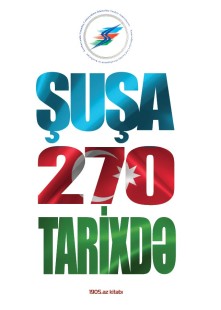
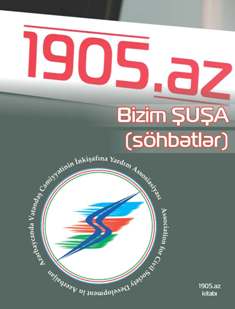
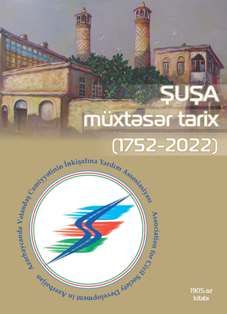
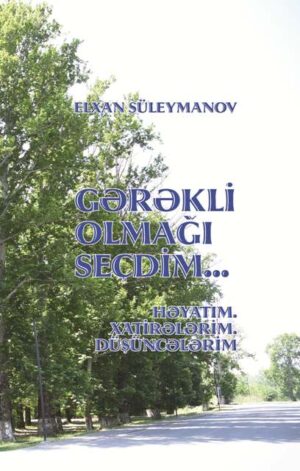
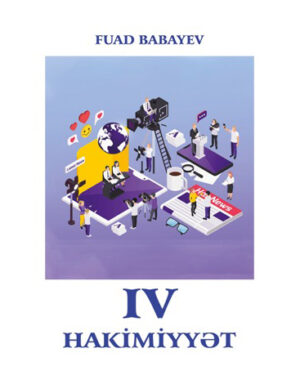
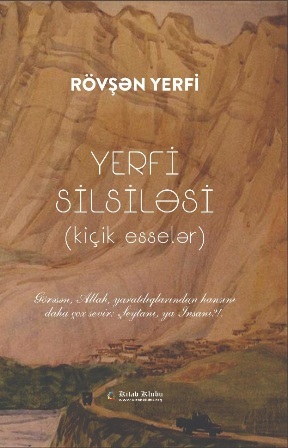
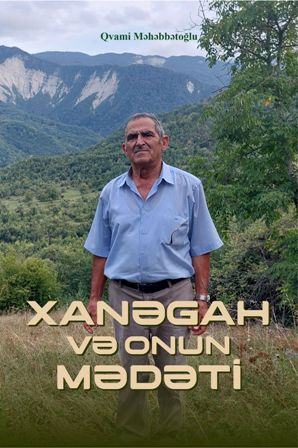










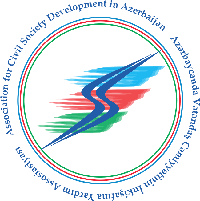
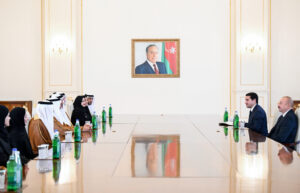 Prezident İlham Əliyev Birləşmiş Ərəb Əmirlikləri Federal Milli Şurasının sədrini qəbul edib VİDEO
Prezident İlham Əliyev Birləşmiş Ərəb Əmirlikləri Federal Milli Şurasının sədrini qəbul edib VİDEO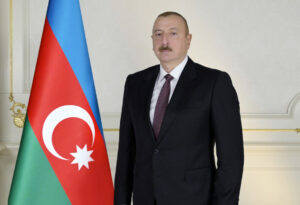 Prezident İlham Əliyev Qazaxıstana dövlət səfəri ilə bağlı paylaşım edib VİDEO
Prezident İlham Əliyev Qazaxıstana dövlət səfəri ilə bağlı paylaşım edib VİDEO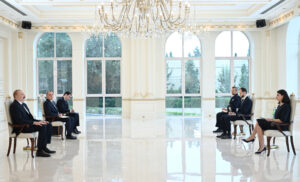 Azərbaycan Prezidenti Fransanın ölkəmizdə yeni təyin olunmuş səfirinin etimadnaməsini qəbul edib VİDEO
Azərbaycan Prezidenti Fransanın ölkəmizdə yeni təyin olunmuş səfirinin etimadnaməsini qəbul edib VİDEO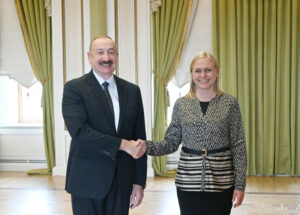 Prezident İlham Əliyev ATƏT-in fəaliyyətdə olan sədrinin başçılıq etdiyi nümayəndə heyətini qəbul edib VIDEO
Prezident İlham Əliyev ATƏT-in fəaliyyətdə olan sədrinin başçılıq etdiyi nümayəndə heyətini qəbul edib VIDEO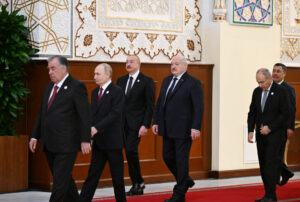 Prezident İlham Əliyev Düşənbədə MDB Dövlət Başçıları Şurasının məhdud tərkibdə iclasında çıxış edib
Prezident İlham Əliyev Düşənbədə MDB Dövlət Başçıları Şurasının məhdud tərkibdə iclasında çıxış edib